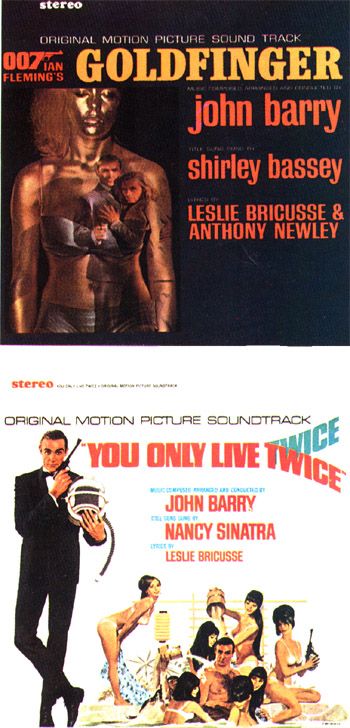

He has strong views about the industry's acquired trend for filling films with wall-to-wall rock and rock music, despite his own early background in the music business. "It's something I really don't like, although there is a place for it. When we did Midnight Cowboy, that was one of the first films to be scored with a major acknowledgment towards pop songs, but it was very carefully done. John Schlesinger, the film's director, Jeremy Hellman the producer, and I worked in really fine detail, selecting the songs so that they had a real emotional impact. The songs had an emotional place in the film, and I still think that Midnight Cowboy has a certain savvy about it which is special. However, the idea that you just put anything in the musical score because it will sell albums ... well, that's the music industry taking over the film industry. It's certainly not the way I want to go, at all."
So how does he like the director of any film he's working on to become involved in the film score? "It depends on their knowledge, if they can communicate and clarity between the director and composer is obviously very important. You can talk with some directors and they say one thing, and it turns out they means some completely different! On some occasions I've had quite disastrous communications with directors!"
Barry had no such problems on the recently-completed film, Chaplin. Director Richard Attenborough knew exactly what he wanted ..."He's very musical," says Barry. "He has a good musical knowledge, and a strong idea of what he wants for a film. He was in attendance at all the recording sessions, when we used the English Chamber Orchestra who were just wonderful. Richard was terribly involved with the music, because he adores what music can do for a film - for the most part, we saw eye to eye."
 He also has good things to say
about Kevin Costner whose
western epic, Dances With Wolves,
won him his fifth Oscar. "That was very fortunate, given that it was
Kevin's first film as a director. One
area people get very nervous about
in films is the music, because of the
nature of the beast. There's a lot to
absorb in a short space of time,
especially when there are around
ninety musicians in the studio!."
He also has good things to say
about Kevin Costner whose
western epic, Dances With Wolves,
won him his fifth Oscar. "That was very fortunate, given that it was
Kevin's first film as a director. One
area people get very nervous about
in films is the music, because of the
nature of the beast. There's a lot to
absorb in a short space of time,
especially when there are around
ninety musicians in the studio!."
Dances With Wolves is one of Barry's most impressive scores, and it was in fact his first for two years (the previous one had been 1988's Masquerade). The reason for the lengthy break in an otherwise prolific career was illness - a ruptured oesophogus almost put an end, not just to his career, but also to his life. Consequently, the album for Dances With Wolves is dedicated to the three doctors who saved his life.
The Oscar lie won did much to restore Barry's faith in his own abilities, especially since the first film he had been offered following his recovery had almost ended in disaster. "That was Stella for Disney, which was produced by Sam Goldwyn Jnr, with whom I'd worked before. It turned out to be an absolute disaster, and I walked out. Everything went wrong for the film when it should have been clear sailing. Things became so confused that, in the end, I didn't know what I was writing anymore. My agent, said, "You're walking off the first movie you've done since your illness", but I told him that it was going to be a disaster when it came out, that nobody would go and see it, and that I didn't want to be associated with it. And sure enough, when it came out it was an absolute and total disaster."
"When Kevin Costlier, and his producer Jim Wilson, called me about Dances With Wolves, I was really pleased as I loved the screenplay, but it certainly wasn't the gift horse it might have appeared. There were people calling it Kevin's Gate, comparing it to the ill-fated Heaven's Gate, and it was viewed in Hollywood as being the big problem movie. Except, that is, by those people who had seen the footage, and had faith in the project. When it turned out like it did, everyone was saying how wonderful it was, it came through as a surprise to many people."
Finally, now that his work on Chaplin, and The Bodyguard, is completed, it will come as no surprise to learn that, with his illness finally behind him, Barry's future output will be a prolific as ever. "I've just finished an album with the Royal Philharmonic Orchestra, called Movieola, which Epic Records is releasing, and I'm shortly starting called Indecent Proposal , which stars Robert Redford and Demi Moore "
Then I'm going to produce a film myself! I bought the rights to John Steinbeck's Childhood Charlie, and I'm producing it with Jim Wilson and Kevin Costlier for their company, Tig. We're in the process of having it written at the moment, and it will be a two-hour-made-for-television film, followed by six one-hour episodes of Steinbeck's Journey Across America. That's going to be a special project which I'll be scoring as well."
All of which, I'm sure will be anticipated with great pleasure by John Barry's many fans. Play it again, John!
This article was originally published in Gold magazine. Volume 1 Issue 8.
Why not try John Barry's music on CD from Amazon.For another selection just click on your browsers refresh button |